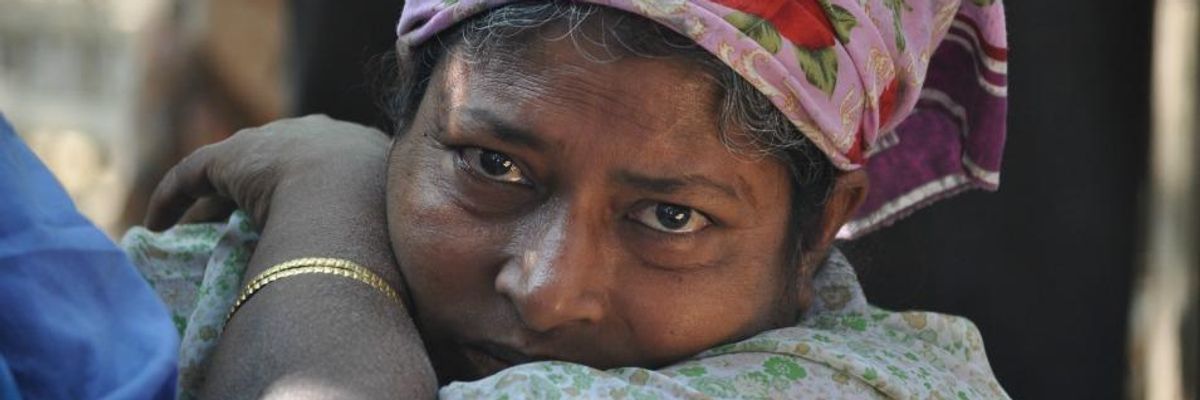Making a tour of Asia President Obama has just landed in Burma. He just made headlines for a climate deal with China that can help save the planet. Now he has the chance to save 1.3 million people by bringing the world's attention to the growing threat of genocide against Burma's Rohingya ethnic minority. But with the government of Burma pressuring the world not to even say their name, the question is will he?
The Rohingya ethnic minority in Burma have been called "the most oppressed people on Earth".
The 1.3 million Rohingya of Burma have been denied citizenship and stripped of all rights. They are forced to live in Aparthied conditions where they cannot travel, work, even marry without permission. Over 140,000 were forced into concentration camps after their homes and villages were burnt to the ground.
Because of these attacks, and those against other minority groups in Burma, the U.S. Holocaust Memorial Museum's Early Warning Project has named Burma as the #1 country at risk of state-led mass killing.
Now their very existence is being denied. According to Burma's President Thein Sein, "There are no Rohingya" in Burma. The government of Burma has prohibited the use of their name and is pressuring foreign officials not to utter the word, as the UN Special Rapporteur for Human Rights in Burma has noted with alarm. When Secretary of State John Kerry visited Burma in August he did not say their name in public.
Words have power.
President Obama must show the government of Burma that the United States won't be bullied into ignoring a vicious campaign of hatred by using the name Rohingya and calling for their protection.
However well intended, President Obama must recognize that his administration miscalculated when it lifted most sources of economic and diplomatic pressure on the regime two years ago.
The last two years of backsliding and broken promises in Burma have made it clear that it's time for a change in U.S.-Burma relations. Pressure on their government is the only way to guarantee the reforms needed to protect those under attack and push for political reform.
By speaking up for the Rohingya ethnic community under siege by the military dominated government, President Obama could take an important step to break the silence. The United States wields significant political and economic influence over Burma. By demanding protection of the Rohingya, and threatening punitive sanctions, we could see immediate changes.
There is a lot at stake. The Rohingya are not just a name, they are a people and a culture at risk of being erased. And they need us - and President Obama - to be demanding their protection to prevent a genocide from unfolding in Burma today.

